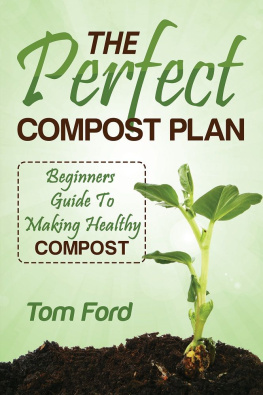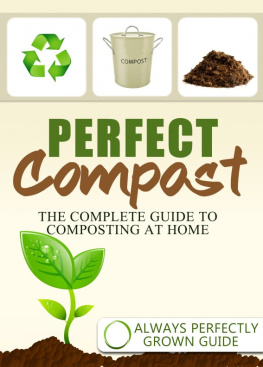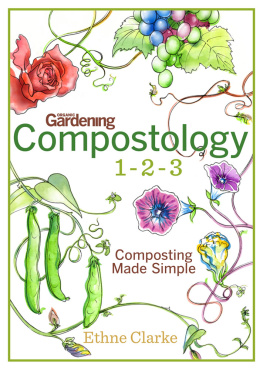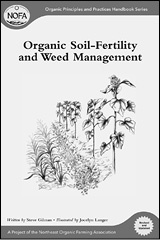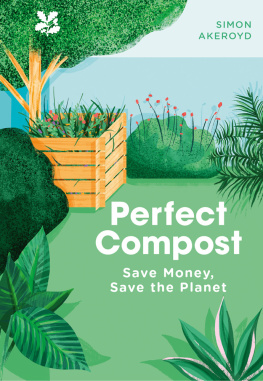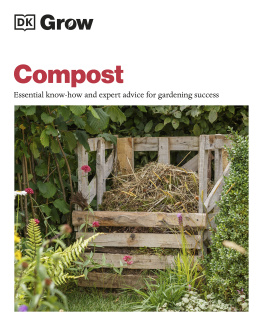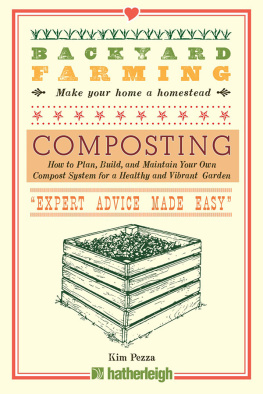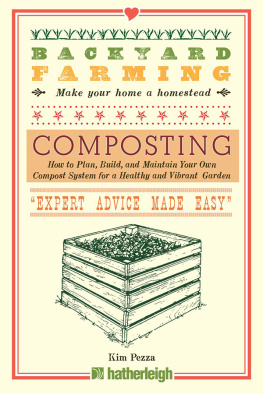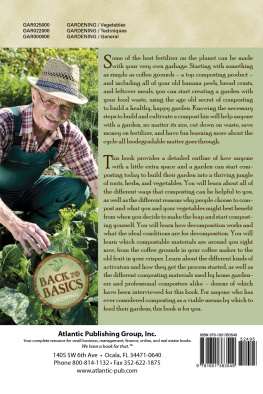Tom Ford - The Perfect Compost Plan: Simple Guide To Making Healthy Compost
Here you can read online Tom Ford - The Perfect Compost Plan: Simple Guide To Making Healthy Compost full text of the book (entire story) in english for free. Download pdf and epub, get meaning, cover and reviews about this ebook. year: 2014, publisher: Lighting Bolt Publishing, genre: Home and family. Description of the work, (preface) as well as reviews are available. Best literature library LitArk.com created for fans of good reading and offers a wide selection of genres:
Romance novel
Science fiction
Adventure
Detective
Science
History
Home and family
Prose
Art
Politics
Computer
Non-fiction
Religion
Business
Children
Humor
Choose a favorite category and find really read worthwhile books. Enjoy immersion in the world of imagination, feel the emotions of the characters or learn something new for yourself, make an fascinating discovery.
- Book:The Perfect Compost Plan: Simple Guide To Making Healthy Compost
- Author:
- Publisher:Lighting Bolt Publishing
- Genre:
- Year:2014
- Rating:5 / 5
- Favourites:Add to favourites
- Your mark:
- 100
- 1
- 2
- 3
- 4
- 5
The Perfect Compost Plan: Simple Guide To Making Healthy Compost: summary, description and annotation
We offer to read an annotation, description, summary or preface (depends on what the author of the book "The Perfect Compost Plan: Simple Guide To Making Healthy Compost" wrote himself). If you haven't found the necessary information about the book — write in the comments, we will try to find it.
Tom Ford: author's other books
Who wrote The Perfect Compost Plan: Simple Guide To Making Healthy Compost? Find out the surname, the name of the author of the book and a list of all author's works by series.
The Perfect Compost Plan: Simple Guide To Making Healthy Compost — read online for free the complete book (whole text) full work
Below is the text of the book, divided by pages. System saving the place of the last page read, allows you to conveniently read the book "The Perfect Compost Plan: Simple Guide To Making Healthy Compost" online for free, without having to search again every time where you left off. Put a bookmark, and you can go to the page where you finished reading at any time.
Font size:
Interval:
Bookmark:
The Perfect Compost Plan:
Simple Guide To Making Healthy Compost
TOM FORD
COPYRIGHT 2014
ALL RIGHTS RESERVED
Disclaimer
No part of this eBook can be transmitted or reproduced in any form including print, electronic, photocopying, scanning, mechanical or recording without prior written permission from the author.
While the author has taken utmost efforts to ensure the accuracy of the written content, all readers are advised to follow the information mentioned herein at their own risk. The author cannot be held responsible for any personal or commercial damage caused by misinterpretation of information.
All ideas, views and thoughts expressed in this eBook are the authors own. References have been provided wherever possible. The Perfect Compost Plan is not affiliated, authorized or endorsed with any of the brands and names mentioned in here unless specified otherwise. This book is not meant for promotional or advertising purposes.
All information contained here is meant to be taken as a guideline. The gardening experience can be different from person to person owing to different climates; soil types, plant availability etc and the advice contained herein is mentioned in a neutral manner. It is understood that the reader claims responsibility for their own actions.
The author does not claim nor was any guarantee made regarding any success through this book. Therefore they cannot be held responsible should any losses, risks, liabilities or damages occur, that might be linked, directly or indirectly, with the information contained within this book.
Table of Contents
Compost is made from decomposing anything that is produced or comes from an animal or plant, also called organic waste. It is widely used in gardens for retaining nutrient levels, moisture retention and to improve the overall soil structure.
Compost not only helps your garden but is also very useful for improving the quality of environment. Organic waste, if kept in a specific environment, turns into a humus-like material (compost) with time.
Composting offers an alternative method for handling waste that is both useful and highly environment friendly. Composting reduces around 7,000 landfills of waste entering the waste stream in the United States alone!
It is no wonder then that more and more people are turning towards purchasing compost from markets, or even better, producing their own.
Composting is not a new phenomenon. It has been widely practiced since the early Roman Empire, or perhaps even before that.
Composting started by piling the organic material until the next planting season. With time, the materials decayed until they could be used with the soil. This process has obviously evolved with time and today composting is modernized and regulated.
The method relatively remains the same; you simply pile up organic materials and allow them to rot until they turn into hummus or compost. There has been a lot of debate regarding the ideal time for organic waste to turn into compost.
Of course, modern proponents for fast composting have been attempted, but composting at home uses the slow, traditional method.
Composting is a natural process that turns organic materials like vegetable scraps, grass, leaves and manure when kept under a specific environment. Ideally, composting requires moisture, warm weather and oxygen (to avoid the unpleasant odor).
Ingredients required for composting can be broken into three categories:
- Browns
- Greens
- Composting Organisms
Browns include straw, shredded paper, dead plants, sawdust from untreated wood and leaves.
Greens include manure, kitchen scraps that are non-dairy and non-meat, grass, clover, seaweed or pond algae and green weeds.
You also require a source of organisms that can assist with composting like soil, chicken, horse or cow manure, old compost or commercial compost starters.
This is just a basic overview of how composting is done. We will discuss the methods and process in detail later on.
Composting can take anywhere from three weeks to up to 12 months depending on the method that you are using and the size of your pile.
Simple hot turn composting takes around 20 days. It is the most demanding and labor intensive composting method, and thus is the fastest. You will require the right proportion of brown and green measured in a 3 x 3 pile to get the compost ready in 20 days.
The no turn pile can take anywhere from three months to twelve months to compost depending on temperature, pile composition and moisture. With a good ratio of carbon to nitrogen, or brown to green, your organic waste pile can compost in around three months.
Other methods like worm bins and black soldier fly larvae are gaining popularity recently too. They can compost anywhere from three weeks to three months.
Composting is a formula that can easily be adjusted according to your atmosphere, environment, requirements and convenience. You can either dump your organic pile in a corner and let it slowly turn into compost or go for relatively faster methods, depending on your own preferences.
The recipes mentioned in this e-book will assist you in finding a method that is both convenient and suitable for varied atmosphere and organic waste.
Composting is a cost effective and environment friendly method that reduces trash and enables you to recycle waste in an efficient and inexpensive manner.
Every year, over 230 million tons of waste is generated in the United States alone and less than 40 percent of this waste is recycled. Simply composting your compostable waste can reduce the total amount of waste produced greatly.
It is not just the process of composting that is beneficial, but compost itself is highly effective in promoting the quality of soil.
Following are a number of ways compost can help your garden and soil:
Incorporating compost into soil greatly improves the soil structure. Soil structure refers to how sand, clay, silt or other inorganic particles combine with compost or organic particles.
A good soil structure is supposed to have a crumbly structure, should be able to retain moisture, should drain well and easily turn over. Crumbly soil allows air to easily penetrate making the soil more efficient and effective. Compost works on most types of soils, especially heavy clay soils and sandy soils.
When clay soils and compost is mixed together, the compost binds the clay particles and forms larger particles that offer more space for air to penetrate. They also assist in better surface water drainage.
Compost consists of a lot of the basic nutrients that plants need for healthy growth. Most importantly, good quality compost consists of phosphorous, potassium and nitrogen and other micronutrients like copper, zinc, iron and manganese.
The fact is, most commercial fertilizers are lacking in micronutrients and thus dont offer the necessary nutritional dosage to the soil. Compost on the other hand offers all the nutrients for your plantation, and practically for free!
Different compost ingredients rot at various times as a result of which compost works as a slow-release fertilizer and keeps the soil enriched for longer. For the same reason, you need to keep your ratios under check when making compost so as to ensure that the compost consists of measured amounts of carbon and nitrogen.
Font size:
Interval:
Bookmark:
Similar books «The Perfect Compost Plan: Simple Guide To Making Healthy Compost»
Look at similar books to The Perfect Compost Plan: Simple Guide To Making Healthy Compost. We have selected literature similar in name and meaning in the hope of providing readers with more options to find new, interesting, not yet read works.
Discussion, reviews of the book The Perfect Compost Plan: Simple Guide To Making Healthy Compost and just readers' own opinions. Leave your comments, write what you think about the work, its meaning or the main characters. Specify what exactly you liked and what you didn't like, and why you think so.

